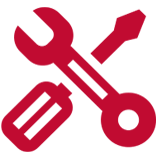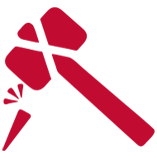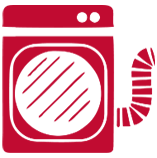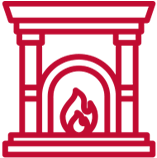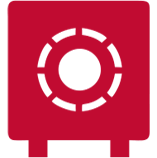Chimney repairs can be a tricky business. Chimneys are crucial to a functioning home, especially during the winter season. As a source of heat and circulation for the house, chimney damage can cause enormous problems for families in the Denver area.
Making matters even worse is the somewhat confusing way most insurance company policies cover such issues.
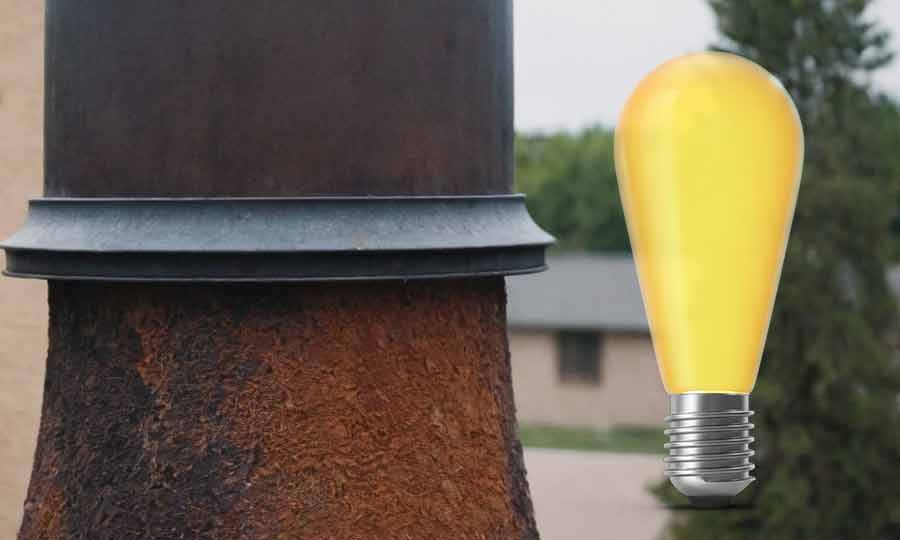
How Does One Know If Home Insurance Covers Chimney Repairs?
The best way to tell if chimney repairs are covered by your home insurance company policy is to read through the homeowner’s insurance policy coverage and see what are considered coverable problems and what are not.
Generally speaking, most homeowners’ insurance policies cover large-scale accidents or unexpected events regarded as unexpected chimney damage, which sounds promising.
The bad news is that conversely, they do not hide anything that might be deemed as ‘normal wear and tear’ or the product of neglectful caretaking on the homeowner’s part.
Chimney Safety Tips for Denver Families
Because of these unique policies, it is all the more critical for Denver families to take good care of their chimneys.
While extensive damage caused by a freak accident or storm will most likely be covered, general repairs that must be made due to wear and tear won’t be covered, meaning that they will lead to much more costly chimney repairs for the homeowner.
Once you’ve had your chimney repaired, it’s important to keep up with maintenance to keep it safe.
Fortunately, the Chimney Kings team is here for you. With several years of experience under our belts and a dedication that positions us as a cut above the rest, whether you’re dealing with chimney damage, chimney masonry repair, your chimney flue, internal chimney damage, your chimney liner, chimney crowns, or an excessive acidic creosote buildup, our team is the perfect fit for you. Learn About Our Chimney Expertise here!
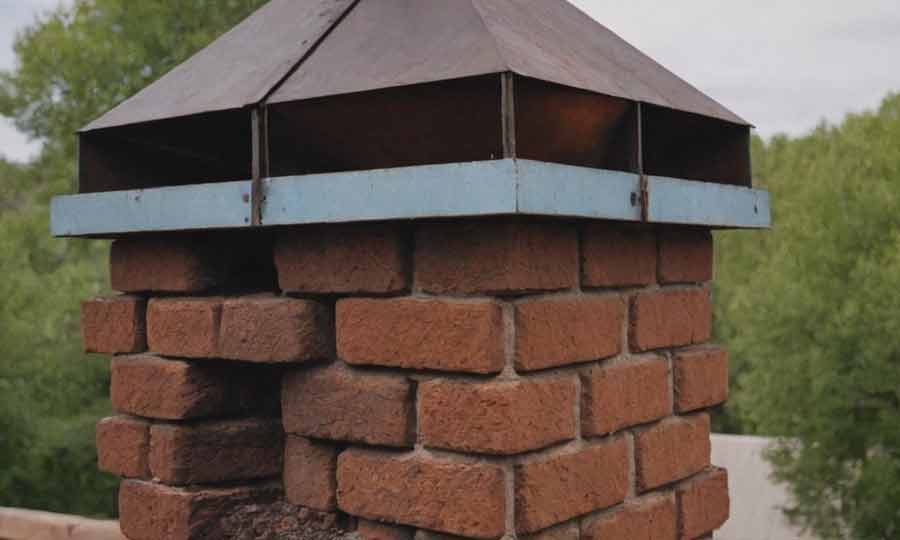
What kind of chimney repairs will homeowners’ insurance policies cover?
While a homeowner’s coverage generally does cover chimney repair, and you’ve almost certainly been reassured by an agent in the past that you are completely covered, it is sadly not quite that simple.
Often, chimney repairs come down to a distinction between insurance-covered damage or chimney damage that the homeowner must pay for themselves.
This distinction most often comes in the form of referring to common claims and deciding whether or not the chimney damage is a direct result of poor maintenance or upkeep on the homeowner’s part.
This deductive reasoning leads to chimney damage sustained during a freak accident or storm being considered coverable problems, while something less dramatic, such as acidic creosote buildup, is not covered.
The simplest way to avoid such issues is to keep your chimney clean, adequately tended to, and prevent damage. Your chimney is like the lungs of your home, breathing in the good air and expelling the bad.
With our Denver Chimney Inspection Guide, our team at Chimney Kings is prepared to offer you our Comprehensive Chimney Inspection Services so that you never find yourself caught in the uncomfortable position where your insurance company is accusing you of being the cause of the chimney damage and forcing you to pay entirely for the chimney repairs.
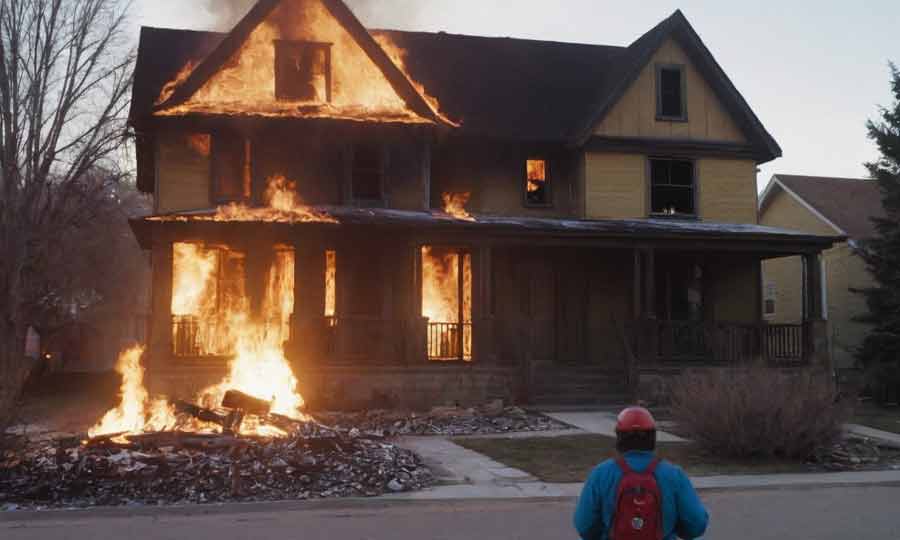
Will homeowners insurance cover chimney fires?
One of many insurance-covered chimney problems that may arise is that of chimney fires. Suppose something should happen, and a fire within the chimney gets out of control and causes damage to the chimney or its surrounding area. Is it considered unexpected or one of those coverable problems?
Yes, chimney fires are covered. While the insurance company will almost certainly investigate their own and could retroactively cancel their coverage if they find evidence that points to the fire being a direct result of negligence on the homeowner’s part, the homeowner’s insurance does cover any damage incurred by the chimney or the house in the situation of chimney fires or a house fire.
Will the homeowner’s insurance cover repair to a leaning chimney due to a structural defect?
Why would homeowner’s insurance cover chimney fires? A chimney fire is an unexpected accident that causes unforeseen chimney damage.
Chimney fires are a quick, dramatic event that drastically alters the extent of the chimney repairs needed. By this logic, structural damage or a structural defect is not considered unexpected or one of their coverable problems.
A structural defect is the kind of damage that has taken place slowly and over a lengthy period, during which the homeowner’s insurance company would say that the homeowner had ample opportunities to remedy the issues before they became so severe as to cause damage.
As a result, a leaning chimney is not considered a freak accident. Still, it is the culmination of several longstanding issues, and as a result, the homeowner would not be covered if they were seeking to fix it.
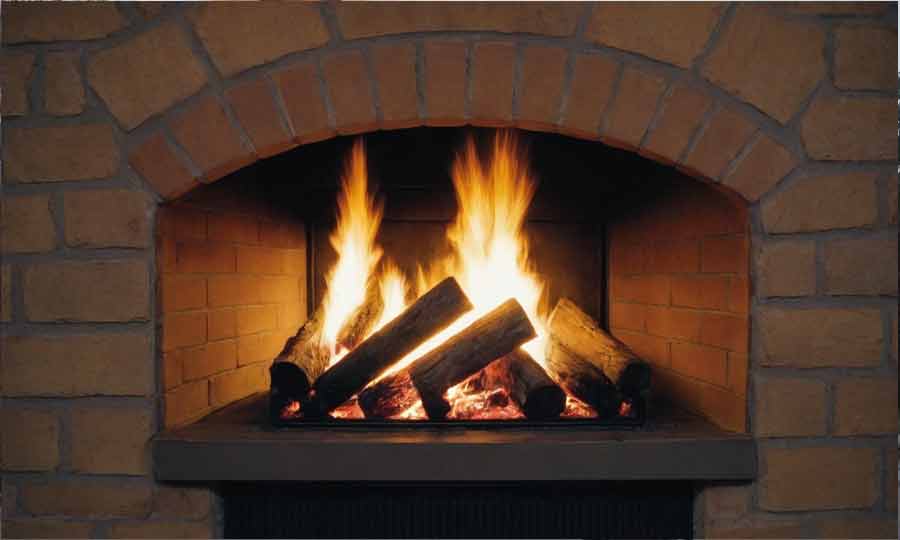
Would wood do you good?
This brings up the interesting point of ensuring that when you move into a new home or are constructing a fireplace, everything has been built with the best materials to ensure you and your family’s safety for years.
Furthermore, when utilizing your chimney and seeking to keep your chimney as safe and clean as possible to avoid chimney damage, you want to be sure that you are burning the best wood.
For more on what types of wood are best for your fireplace and how to avoid faulty masonry, read Choosing the Right Wood for Your Fireplace!
Does the homeowner’s insurance cover hidden structural damage?
Generally speaking, by the same logic that allows for chimney fires to be covered and for chimney damage resulting in a leaning chimney not being protected, structural damage is often not covered by a homeowner’s insurance company policy.
These defects cannot be covered if the structural damage stems from a faulty chimney repair. However, if said structural damage leads to an eventual accident or event occurring precisely because of it, then those chimney repairs would be considered one of the coverable problems.
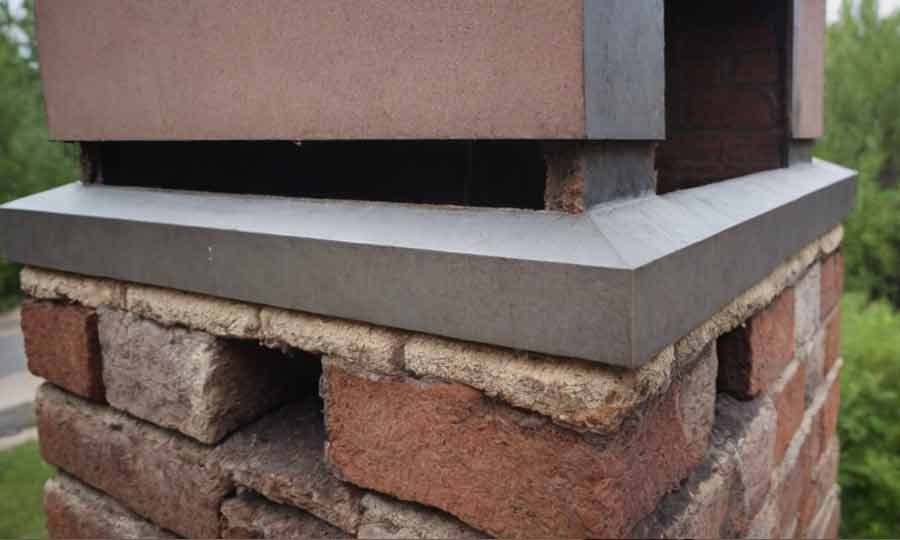
Will homeowners insurance cover a collapse?
Strangely enough, this is one of the most legally ambiguous issues that chimney repairs face. If a chimney collapses, it’s possible that the insurance company could very well deny the claim.
In this case, the logic would be that the chimney collapses due to negligence on the homeowner’s part, as the culmination of many failings, just like the leaning chimney example earlier.
However, the point could also very validly be made that a chimney collapse is an extreme event or accident and thus should be covered. In order to avoid events such as this altogether, be sure to read our Fireplace Safety Guide for Homeowners!
Will homeowner’s insurance cover your chimney repair due to water damage?
Theoretically, there are exceedingly unique circumstances where water damage could be covered if a plumbing issue affected the chimney.
But as a general rule, no, water damage would not be considered unexpected or one of the coverable problems. Water damage to chimneys comes from sustained exposure to rain and snow.
This is why a chimney cap or crowns exist: to keep chimneys safe from prolonged exposure to inclement weather conditions that could cause them harm.
In this way, a homeowner’s insurance company often sees water damage as a direct result of failure to upkeep on the homeowner’s part.
One of the things that can most help prevent water damage over many years is a chimney lining, which can cut down substantially on erosion.
For more on Chimney Kings’ Chimney Lining Installation, read on. If you need your chimney cleaned prior to installation, we also offer extensive services to get your chimney cleaned and keep it that way!
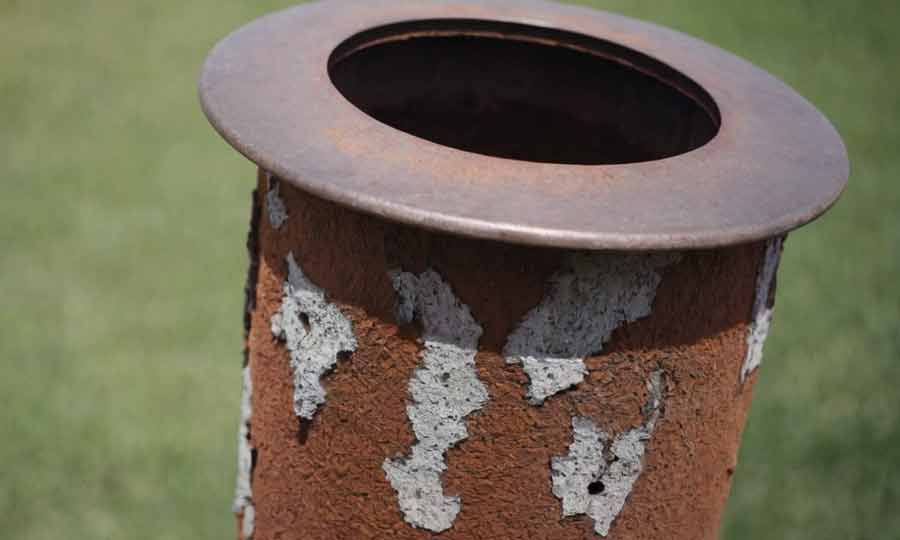
Standard Chimney Problems Covered by Insurance
Pretty much any scenario in which it can be reasonably stated that there was no way the homeowner could prevent chimney damage from occurring in this manner is covered.
This includes chimney issues such as fires or a chimney sustaining extensive damage from branches falling during a storm.
It is covered if a chimney suffered damage from such an unexpected occurrence, something that regular chimney inspection or insurance claims couldn’t have possibly prevented.
However, if a specialist must perform repairs in the event of chimney damage that did demonstrate early signs of trouble or is the result of extensive wear and tear accumulated, then it is not covered. All of this is dictated based on the history of the specific homeowner as well.
If a homeowner’s insurance company sees that they have a claim-free history and have been exemplary, things may be adjusted, as each is handled on a case-by-case basis.
Is Chimney Repair Covered by Homeowners Insurance?
Yes, chimney repair is covered by homeowner’s insurance. The real question is, to what extent does homeowner’s insurance cover chimney repair?
In the event of a sudden and unexpected event, insurance covers chimney damages and necessary repairs, but there are plenty of situations where such repair work is not supported or covered. For further details on how to upkeep your chimney, contact our Denver Chimney Services today.
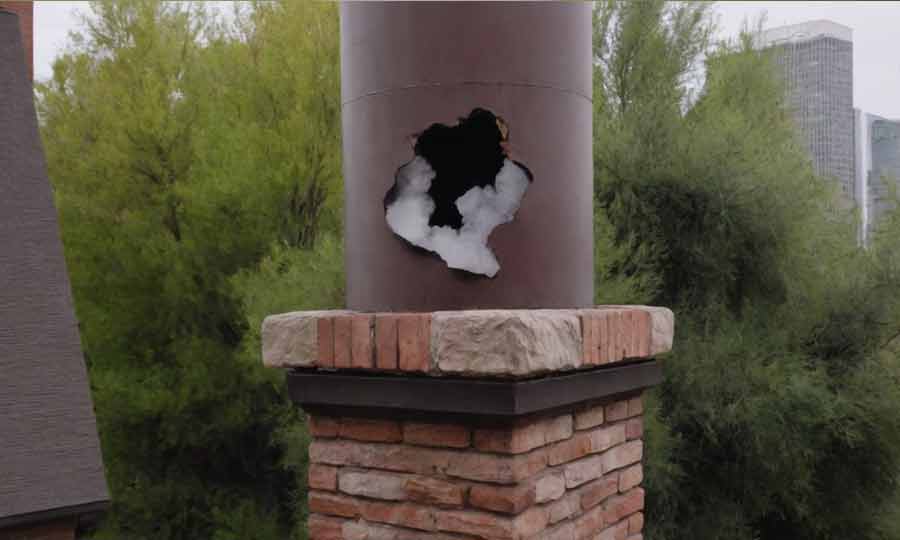
Is a Cracked Chimney Liner Unexpected Chimney Damage?
What does all of this mean for a cracked chimney liner? As we already established, a chimney liner is vitally essential to avoiding erosion and other damages over time. So, would insurance cover your chimney repair work centered around a cracked chimney liner?
No, not unless the liner was cracked in one of their trademarked sudden and unexpected events. Generally speaking, the cracking of a chimney liner would be viewed as resulting from a buildup of wear and tear.
Our team’s Denver Chimney Maintenance Guide can further outline how you can counteract such damages before an insurance company ever has to get involved.
Most homeowner’s insurance policies don’t cover non-accidents
For these reasons, issues with a chimney structure rarely get the attention they should from insurance coverage.
Topics such as a cracked chimney liner can lead to further problems such as a fire, water damage, or even having your chimney collapse in on itself.
Funnily enough, all of these issues would be taken care of by insurance, but attempting to make any repairs before such a tragedy would not be included.

How does the insurance company decide when to pay or not?
Several factors go into an insurance company’s decision about whether or not to pay when it comes to a claim about a cracked chimney liner. Generally speaking, most insurance companies adhere to the basic deductive reasoning covered previously, but other elements can sway their decision.
One of the largest of these is public opinion. If a large-scale chimney fire occurs and then the following day, a different home has its regular chimney inspection in an attempt to avoid such a dramatic event and finds a buildup of flammable creosote, it would not precisely reflect positively upon a popular insurance company (such as State Farm) to openly and publicly deny this claim.
Another huge component is evidence. Much like a court of law, insurance claims go through their system of verification based on proof and corroborating perspectives.
As a result, if a homeowner can provide ample amounts of evidence that the issue in question could lead to something necessitating more than minor repairs shortly, the insurance policy is far more likely to be open-minded about approving their claim.
Get a Second Opinion on Chimney Repairs
You always want to speak with multiple chimney repair crews when it comes to getting an estimate on the extent of the damage to your chimney and how much it is going to cost to repair. As with any other field, getting a single opinion is nowhere near enough.
You want to hear from multiple teams so that you know you are getting the kind of service, value, and repairs you and your home deserve. This will also help tremendously with insurance claims, as the more evidence you can provide them regarding the pricing of the repairs, the better off you will be.
If you’re uncertain about the safety of your chimney, read our Top 5 Signs You Need Chimney Repair in Denver or call us today for a free estimate.
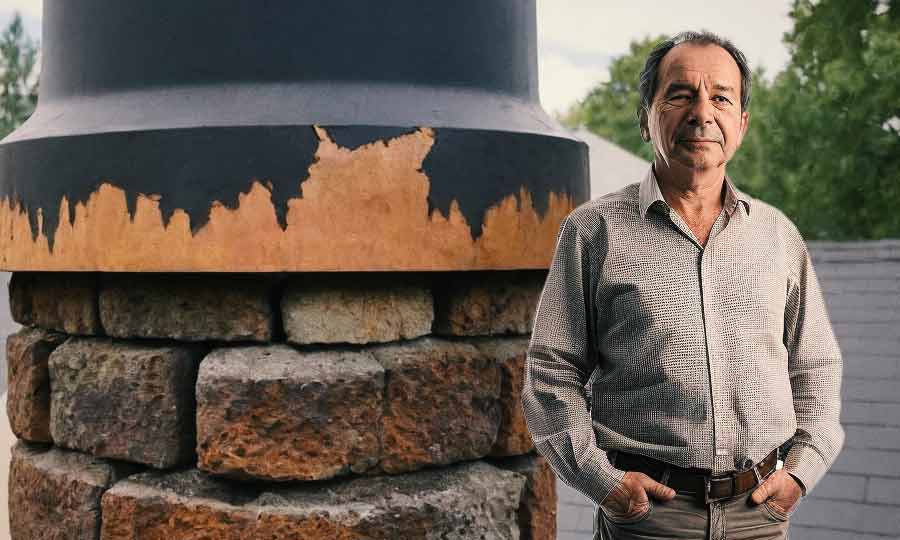
Dealing with Insurance Adjusters
The best way to deal with insurance adjusters is to cut through the number of common claims they receive with ample evidence as to why you require the services of chimney repair crews and why they should cover the charge.
By having one of our CSIA-certified chimney sweeps come out and evaluate the extent of the damage to the chimney liner and the extent of chimney repairs needed, you will have the paperwork and proof you need to best deal with the insurance carrier.
This is much more than just a basic chimney inspection, as our CSIA-certified chimney sweeps will inspect chimney structure, internal chimney damage, your chimney cap if there is any buildup of flammable creosote and more. Our team’s work will delve into both insurance-covered chimney problems and more.
For further Expert Chimney Repair services to suit all of your needs prior to working with insurance adjusters and to receive an expert chimney inspection, call us today!
To Pay or Not to Pay: Claims Secrets
It is critical to remember that most homeowner’s insurance policies are just pieces of paper. Every time that a claim is filed or an incident actually occurs, it is not the paper that decides if you receive funds or not; it is the insurance adjusters themselves.
Regardless of whether you have packaged insurance or a homeowner’s policy, regardless of whether the damage is deemed as one of their ‘sudden and unexpected events’ or not, it ultimately comes down to whether that individual adjuster approves your claim or not.
So speak openly and honestly with the home insurance representative and plead your case as to why you believe you deserve these funds while providing ample amounts of concrete evidence for them.
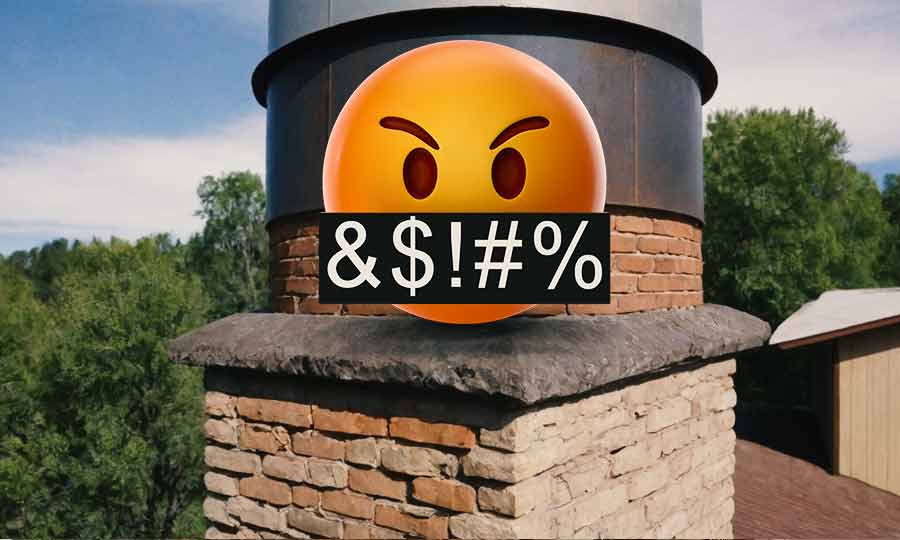
How to fight a denial of a claim
If you feel it is of great importance for a crew to perform repairs to your chimney, but the insurance adjuster denies your claim, there are many ways to fight back. Even if the initial answer is a denial from them, that doesn’t mean all hope is lost.
You can always replead your case to them or take it even higher up the management branch, insisting you speak to a different representative within the home insurance team.
For all the legal litigation and paperwork involved in all of this, insurance companies do not want you to suffer. If you and your home have suffered damage that has greatly affected your life, it is worth pleading your case again.
How to Best Keep Your Chimney in Good Shape
You can prevent the “expected” chimney damage by doing a good cleaning job on the chimney system. Our CSIA-certified cleaning technicians can safely remove flammable creosote from your chimney with ease.
Clean chimneys can significantly reduce yearly fire risk from chimney re-fires. Alongside the cleaning, chimneys are inspected annually for damage.
Keeping chimneys sanitized even when they seem fine goes a long way toward preventing possible damage. Damage that begins as minor damage needing very little chimney repair can quickly turn into costly damage, requiring more extensive chimney repair.
Chimney Kings’ Professional Chimney Cleaning services offer the best chimney inspection and pre-emptive chimney repair around.
Much more than just basic chimney inspection, our team of professional specialists can handle everything from faulty masonry (with our Professional Brick Tuckpointing team) to chimney cap cleaning or replacement.
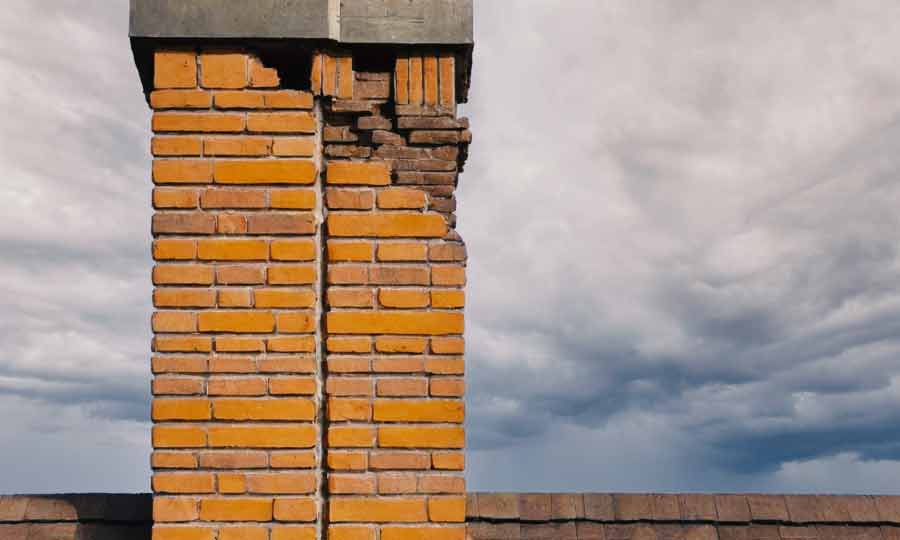
Classifying Chimney Deterioration
Several weather conditions can damage a chimney, which homeowner insurance might cover. If you have trees that have fallen on your property or damaged your chimney, the repair costs are covered.
In most situations, wind damage to a chimney is not covered by your insurance policies, as it is considered the result of long-lasting wear and tear.
The problem with chimney damage is that much of the damage will not meet the requirement of being an unexpected event. If something should happen to a critical piece of your chimney, that minor damage can lead to much more substantial damage if not repaired quickly.
That’s why our professional and highly-trained chimney crown Restoration Services are available to you, with experience with chimney fires and chimney flashing as well.
Protection against Chimney Fires
Fires can seriously damage chimneys or habitats. It may happen that chimneys have huge amounts of hot smoke that damage the flume. This case covers chimney replacement and chimney repairs in any way possible.
In some instances, the company will say that they can’t accept any chimney-related claims due to the maintenance done in advance of the chimney fires.
If you find yourself in need of Specialized Fireplace Repairs to further work to prevent a chimney fire outbreak or to ensure that your family is as safe as they can possibly be in the impending winter months, call us today at (303)-331-7978!
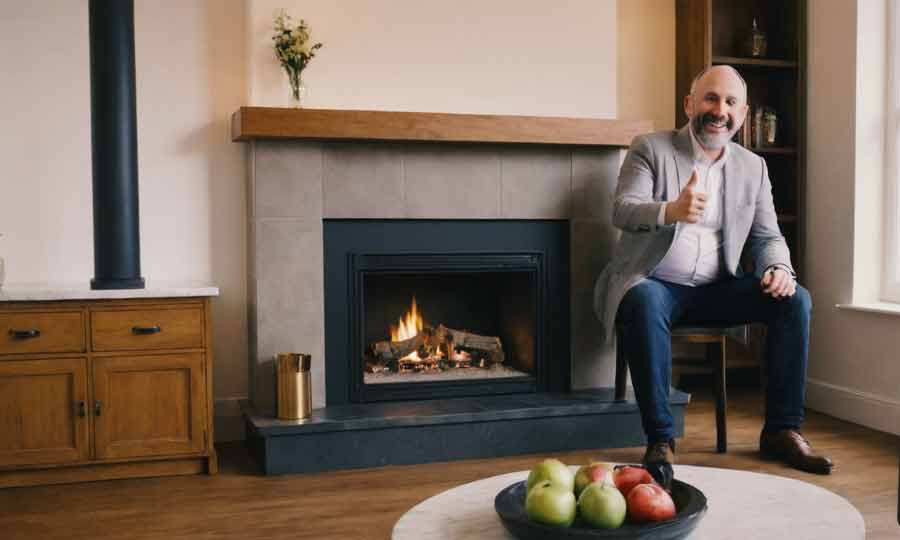
Some More FAQs…
Will insurance cover a leak around a chimney?
Whether your homeowner’s insurance covers a chimney leak, the answer depends entirely upon how the damage that caused the leak was sustained.
If one of the aforementioned ‘sudden and unexpected events’ was the direct and provable cause of the leak, then insurance will cover it.
However, if no such event occurred, the insurance company is far more likely to deny the claim and chalk it up to the leak resulting from negligence on the homeowner’s part.
Who is responsible for chimney repair?
It depends upon what way in which the damage necessitating the repairs occurred. Suppose a ‘sudden and unexpected event’ happened, such as a dramatic storm that caused branches falling or damage to the chimney system.
In that case, your insurance will be responsible for the repair work. However, if damage has been incurred over many years or due to poor upkeep, then the homeowner will be responsible for the repairs.
This is all the more reason to ensure your chimney is well-and-truly protected during inclement weather with one of Chimney Kings’ verified Durable Chimney Caps!
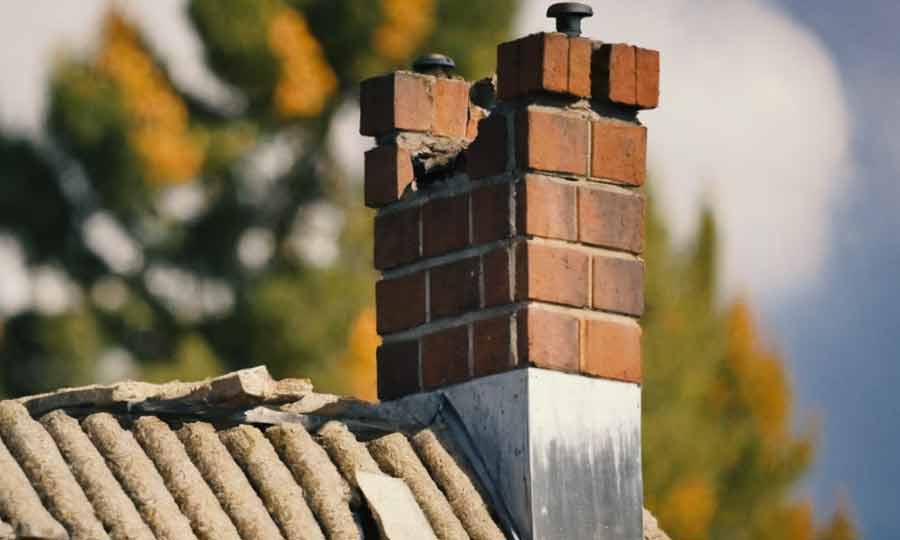
Are cracks covered by insurance?
Cracks caused by subsidence can be covered by building insurance in general if they have not existed before. But cracks from poorly constructed, faulty, or improper foundations usually are not covered.
Does the homeowner’s insurance cover cracks in the structure?
Generally speaking, cracks in the structure are not explicitly covered by most homeowner’s insurance policies unless they are the apparent result of sudden and unexpected events. Contact Us for Chimney Services!


